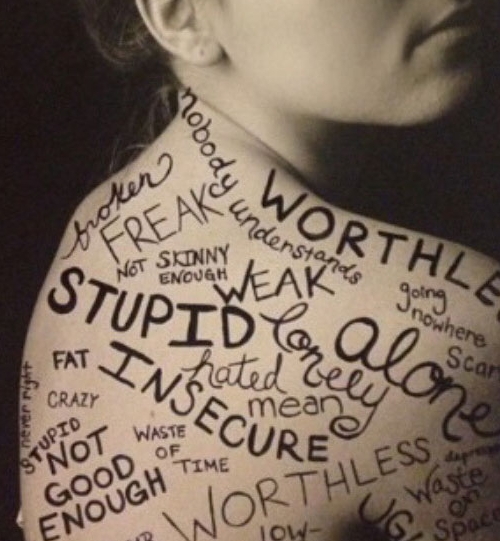
You’ve just left a meeting or an evening out with friends. As you’re walking away, you feel a rush of anxiety. Then it shows up: that voice in your head – rehashing what happened, anticipating what will happen, second-guessing your actions, trying to mind-read others’ thoughts, calling you names and comparing yourself to others – like an addiction or scratch you feel compelled to itch. Sound familiar?
You may be surprised to hear you’re not alone. This is particularly the case with women. That’s the irony: each woman thinks she’s the only one. So, why do we do this?
All this negative thinking is actually a coping strategy to avoid rejection or failure – just not a healthy one. All this ruminating drains energy and distracts. How can you perform at your best or even enjoy a vacation if your mind isn’t “in the present?” Negative self-talk also causes anxiety and depression – which is not surprising if you imagine someone following you around, criticizing and second-guessing your every move!
Of course, most women would never talk to one of their children or good friend this way. They recognize the bully is not only mean, but discouraging and doesn’t reflect their values. Just ask yourself which feedback you would find helpful: 1) “You’re stupid, you don’t know what you’re doing, you don’t deserve to be here” or 2) “It’s okay. Everyone makes mistakes. Let’s look at what you did well and what needs improving?” The irony is women know how to be encouraging and supportive. They just need to apply it to themselves. I call this “being your own best friend.”
In other words, you can and you should use the same relationship skills you use on others, on yourself: nurturing; encouraging; validating; and problem-solving.
It’s not your responsibility to mindread or anticipate other people’s needs. If someone is upset, it’s their responsibility to tell you. And no matter how angry, annoyed, frustrated, hurt, etc someone is, it’s their responsibility to manage and express their feelings constructively. In other words, you have a right to be treated the same way you treat others. I call this “the opposite of the Golden Rule.”
Remind yourself, “I know I’m self-bullying because I’m afraid of rejection or failure but the solution is never to bully myself.” Be your own cheerleader instead.
¹Gilligan, Carol. In a Different Voice: Psychological Theory and Women’s Development, Cambridge, MA: Havard University Press, 2016
²”Carol Gilligan”. (November 23, 2019). In Wikipedia. Retrieved December 1, 2019 from https://en.m.wikipedia.org/wiki/Carol_Gilligan
Green, Penelope. “Carefully Smash the Patriarchy: Carol Gilligan, author of the feminist classic, ‘In a Different Voice,’ reminds us that we’re all humans.” New York Times, March 18, 2019. https://www.nytimes.com/2019/03/18/style/carol-gilligan.html?auth=link-dismiss-google1tap